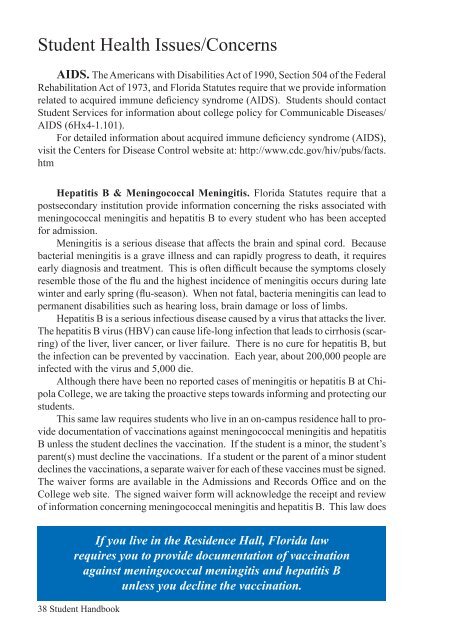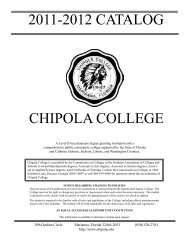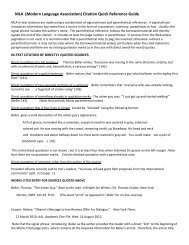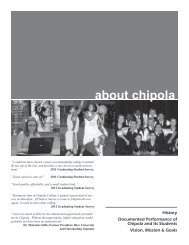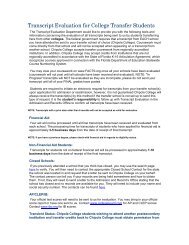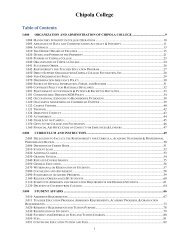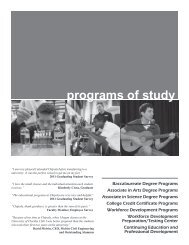Student Handbook - Chipola College
Student Handbook - Chipola College
Student Handbook - Chipola College
Create successful ePaper yourself
Turn your PDF publications into a flip-book with our unique Google optimized e-Paper software.
<strong>Student</strong> Health Issues/Concerns<br />
AIDS. The Americans with Disabilities Act of 1990, Section 504 of the Federal<br />
Rehabilitation Act of 1973, and Florida Statutes require that we provide information<br />
related to acquired immune deficiency syndrome (AIDS). <strong>Student</strong>s should contact<br />
<strong>Student</strong> Services for information about college policy for Communicable Diseases/<br />
AIDS (6Hx4-1.101).<br />
For detailed information about acquired immune deficiency syndrome (AIDS),<br />
visit the Centers for Disease Control website at: http://www.cdc.gov/hiv/pubs/facts.<br />
htm<br />
Hepatitis B & Meningococcal Meningitis. Florida Statutes require that a<br />
postsecondary institution provide information concerning the risks associated with<br />
meningococcal meningitis and hepatitis B to every student who has been accepted<br />
for admission.<br />
Meningitis is a serious disease that affects the brain and spinal cord. Because<br />
bacterial meningitis is a grave illness and can rapidly progress to death, it requires<br />
early diagnosis and treatment. This is often difficult because the symptoms closely<br />
resemble those of the flu and the highest incidence of meningitis occurs during late<br />
winter and early spring (flu-season). When not fatal, bacteria meningitis can lead to<br />
permanent disabilities such as hearing loss, brain damage or loss of limbs.<br />
Hepatitis B is a serious infectious disease caused by a virus that attacks the liver.<br />
The hepatitis B virus (HBV) can cause life-long infection that leads to cirrhosis (scarring)<br />
of the liver, liver cancer, or liver failure. There is no cure for hepatitis B, but<br />
the infection can be prevented by vaccination. Each year, about 200,000 people are<br />
infected with the virus and 5,000 die.<br />
Although there have been no reported cases of meningitis or hepatitis B at <strong>Chipola</strong><br />
<strong>College</strong>, we are taking the proactive steps towards informing and protecting our<br />
students.<br />
This same law requires students who live in an on-campus residence hall to provide<br />
documentation of vaccinations against meningococcal meningitis and hepatitis<br />
B unless the student declines the vaccination. If the student is a minor, the student’s<br />
parent(s) must decline the vaccinations. If a student or the parent of a minor student<br />
declines the vaccinations, a separate waiver for each of these vaccines must be signed.<br />
The waiver forms are available in the Admissions and Records Office and on the<br />
<strong>College</strong> web site. The signed waiver form will acknowledge the receipt and review<br />
of information concerning meningococcal meningitis and hepatitis B. This law does<br />
If you live in the Residence Hall, Florida law<br />
requires you to provide documentation of vaccination<br />
against meningococcal meningitis and hepatitis B<br />
unless you decline the vaccination.<br />
38 <strong>Student</strong> <strong>Handbook</strong>


